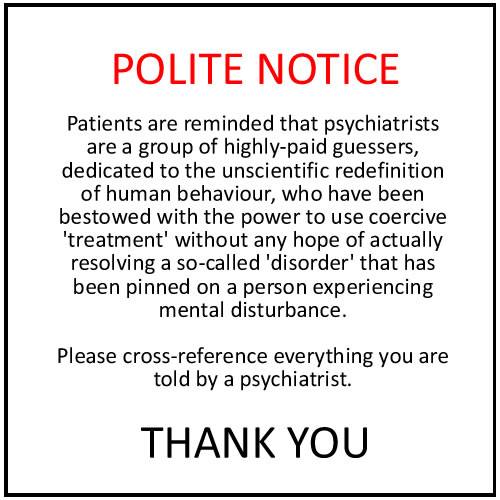
Types of Conjunctivitis and Handlings
STORY AT-A-GLANCE
- Viral conjunctivitis (“pink eye”) is highly contagious and typically caused by adenovirus, presenting with red, irritated, crusty, and watery eyes
- Bacterial pink eye produces thick yellow-green discharge and typically affects one eye initially, while viral cases often accompany cold symptoms like sore throat and runny nose
- Nebulized hydrogen peroxide diluted to 0.1% concentration and applied via face mask over affected eye(s) can rapidly eliminate viral pink eye symptoms
- Essential preventive measures include proper hand hygiene, avoiding eye touching, not sharing personal items, and maintaining good immune health through sleep, stress management, and exercise
- Medical attention is needed if symptoms include intense eye pain, increased light sensitivity, vision changes, or if the patient is immunocompromised, as complications like keratitis can lead to vision loss
Have you ever woken up one morning to find your eyes are red, irritated, crusty and watering excessively? This common scenario describes viral conjunctivitis, often referred to as “pink eye.”
While it might seem like a minor inconvenience, viral conjunctivitis can significantly impact your daily life and eye health. Unlike bacterial or allergic conjunctivitis, viral conjunctivitis is caused by viruses, most commonly the adenovirus. These viruses often accompany other viral infections like the common cold or flu.
Viral conjunctivitis is highly contagious and can spread rapidly, especially in communal settings like schools and workplaces.
Recognizing the Key Differences Between Allergic, Bacterial and Viral Conjunctivitis
Understanding the differences between viral, bacterial, and allergic conjunctivitis is crucial for effective treatment and recovery.
•Allergic conjunctivitis stems from allergens like pollen or pet dander, leading to itchy, watery eyes.
•Bacterial conjunctivitis is caused by bacteria such as Staphylococcus aureus, Streptococcus pneumoniae, and Haemophilus influenzae, typically resulting in thick, yellow-green discharge that can cause the eyelids to stick together, especially after sleep. These bacteria can enter the eye through direct contact with contaminated hands, surfaces, or respiratory droplets.
Redness may be more pronounced in one eye initially but can spread if not treated promptly. Noticeable swelling or puffy eyelids are more common in bacterial cases. Unlike viral conjunctivitis, bacterial conjunctivitis typically does not present with systemic symptoms like a runny nose or sore throat, which can help in distinguishing it from its viral counterpart.
Bacterial conjunctivitis often exhibits a faster onset of severe symptoms, escalating quickly within a day or two and becoming more severe if left untreated. Without appropriate treatment, bacterial conjunctivitis can spread to both eyes and lead to more serious eye infections, underscoring the importance of timely medical intervention.
•Viral conjunctivitis is an infection of the conjunctiva, the thin, clear tissue that lines the inside of your eyelid and covers the white part of your eye. Common symptoms include noticeable redness in the white of the eye or inner eyelid, excessive watery discharge from the eyes, a persistent itching or burning sensation that makes blinking uncomfortable, and a watery or mucus-like discharge that may form a crust, especially upon waking.
Additionally, viral conjunctivitis may include symptoms such as a runny nose, sore throat, or fever, indicating an underlying viral infection. Patients may also experience a persistent itching or burning sensation, though it is generally less intense than what is observed in allergic conjunctivitis.
Viral conjunctivitis spreads through direct contact with infected secretions, contaminated surfaces, or respiratory droplets from an infected person’s cough or sneeze. Sharing personal items like towels, makeup, or contact lenses can also facilitate the transmission of the virus.
Several factors increase the risk of contracting viral conjunctivitis, including living in close quarters with someone who is infected, having a weakened immune system, and poor hygiene, such as infrequent handwashing or touching the eyes with unwashed hands.
Viral conjunctivitis symptoms can persist for one to two weeks, gradually improving as the body fights off the virus. Most cases resolve without the need for antibiotics, relying on your body’s immune response for recovery.
Conventional Medical Treatments
Conventional treatments for viral conjunctivitis focus primarily on relieving symptoms. Supportive care, such as artificial tears and lubricating eye drops, can soothe irritation and reduce redness.
Applying a clean, cold cloth over closed eyes can alleviate discomfort and swelling. In severe cases, especially those caused by the herpes simplex virus, antiviral eye drops or ointments may be prescribed.
However, while conventional treatments can ease symptoms, they don’t directly target the underlying viral infection. Additionally, the misuse of antibiotics for viral conjunctivitis can contribute to antibiotic resistance and may lead to unnecessary side effects. Accurate diagnosis is also essential to avoid inappropriate treatments.
Natural Remedies Work Far Better
Maintaining impeccable hygiene is your first line of defense against viral conjunctivitis. Washing your hands thoroughly with soap and water, especially before touching your face or eyes, is essential. That said, excessive handwashing is counterproductive and can increase your risk of infections by damaging the skin on your hands.
Avoid touching or rubbing your eyes to prevent further irritation and the spread of the virus. Additionally, avoid sharing personal items like towels, pillows, or makeup to minimize transmission risks.
A nutrient-rich diet supports overall eye health and immune function. Vitamins A, C, and E are antioxidants that protect eye tissues and support immune health. Incorporating foods like carrots, citrus fruits, and leafy greens into your meals can provide these essential nutrients. Omega-3 fats, found in small cold-water fatty fish, reduce inflammation and promote eye health.
Staying hydrated by drinking plenty of water also maintains optimal eye moisture and supports your body’s natural defenses. Other lifestyle strategies that support your immune function include:
•Sleep — Aim for 7 to 9 hours of quality sleep each night to allow your body to repair and strengthen its defenses.
•Stress relief — Chronic stress can weaken the immune system, so practicing relaxation techniques like meditation, deep breathing, or yoga is beneficial.
•Exercise — Engaging in moderate physical activity boosts circulation and supports immune health.
Nebulized Hydrogen Peroxide Can Eliminate Pink Eye in 30 Minutes
One of the most effective ways to rapidly eradicate viral infections is with nebulized peroxide, and this works for pink eye as well. I recently treated myself this way, after I woke up with viral conjunctivitis in one eye, and 30 minutes after treatment, my symptoms were all gone.
As for respiratory infections, all you need is a nebulizer that emits a fine mist with properly diluted food grade hydrogen peroxide. The only difference is that you place the face mask over the affected eye(s) instead of your mouth and nose.
Typically, food grade peroxide comes in concentrations of 3% or 12%, which must be diluted down to 0.1%, as described in the chart below.

Hydrogen peroxide (H2O2) consists of a water molecule (H2O) with an extra oxygen atom, and it is the additional oxygen atom that allows it to inactivate viral pathogens.
Some of your immune cells actually produce hydrogen peroxide to destroy pathogens. By killing the infected cell, viral reproduction is stopped. So, hydrogen peroxide therapy is in essence only aiding your immune cells to perform their natural function more effectively.
Hydrogen peroxide (H2O2) consists of a water molecule (H2O) with an extra oxygen atom, and it is the additional oxygen atom that allows it to inactivate viral pathogens.
Some of your immune cells actually produce hydrogen peroxide to destroy pathogens. By killing the infected cell, viral reproduction is stopped. So, hydrogen peroxide therapy is in essence only aiding your immune cells to perform their natural function more effectively.
When to Seek Medical Attention
While viral conjunctivitis is generally self-limiting, certain situations warrant professional medical evaluation. Persistent or intense eye pain may indicate a more serious condition that requires immediate attention.
Increased sensitivity to light can be a sign of corneal involvement or other complications that need prompt assessment by an eye care professional. Any changes in vision should also be taken seriously and evaluated to rule out more severe issues.
Viral conjunctivitis can lead to complications such as keratitis, which is inflammation of the cornea that can result in scarring and vision loss if left untreated. Bacterial superinfection can also occur, necessitating antibiotic treatment.
Special considerations should be made for infants, the elderly, and those with compromised immune systems, as these groups are more susceptible to severe infections and complications.
Dispelling Myths About Viral Conjunctivitis
It’s important to clarify common misconceptions surrounding pink eye to promote accurate understanding and effective management.
One common misconception is that all pink eye is highly contagious. While viral conjunctivitis is indeed contagious, bacterial and allergic types are not necessarily so. Understanding the specific type helps in managing transmission risks effectively.
Another myth is that antibiotics are effective for viral conjunctivitis. Antibiotics only work against bacterial infections and are ineffective against viral causes. Misusing antibiotics can contribute to antibiotic resistance and other side effects, emphasizing the importance of accurate diagnosis.
Additionally, the belief that viral conjunctivitis always requires medical treatment is not entirely accurate. Most cases resolve on their own with supportive care. However, severe or complicated cases may need medical intervention, underscoring the importance of recognizing when professional help is necessary.
Supporting Overall Eye Health
Regular eye exams, even if you don’t experience symptoms, can detect issues early and keep your eyes functioning at their best. Annual check-ups are recommended, especially if you wear contact lenses or have a history of eye conditions.
Protective measures are also important. Wearing protective glasses or goggles during activities that pose a risk to your eyes, such as sports or certain work environments, will help prevent injuries and infections.
Maintaining a healthy lifestyle also contributes to eye health. Avoiding smoking reduces the risk of eye diseases like cataracts and macular degeneration. Managing chronic conditions such as diabetes and hypertension is also essential, as these conditions can adversely affect eye health.
So, in closing, viral conjunctivitis, while common and often self-limiting, can cause significant discomfort and inconvenience. Understanding its causes, recognizing symptoms, and using natural remedies such as nebulized hydrogen peroxide can empower you to manage and prevent this condition effectively.
Embracing a holistic approach — focusing on hygiene, nutrition, immune support, and natural remedies — will enhance your eye health and overall well-being over the long term.
https://articles.mercola.com/sites/articles/archive/2025/01/15/pink-eye-treatment.aspx
High Iron Levels Threaten Bone Health and Increase Fracture Risk

- High iron levels, particularly serum ferritin above 1,000 µg/L, significantly increase the risk of fractures, with vertebral fractures being most common. Managing iron levels is key to reducing this risk
- Both iron overload and deficiency weaken bones. Excess iron promotes osteoclast activity, leading to bone resorption, while insufficient iron impairs osteoblast function, disrupting bone formation
- Elevated iron levels adversely affect bone microarchitecture, compromising bone strength and increasing fracture susceptibility
- Excess iron leads to the production of reactive oxygen species, causing oxidative stress that damages bone cells and disrupts their function, further weakening bones
- If your ferritin levels are high, establish a regular blood donation schedule of two to four times per year to effectively remove excess iron from your body
A population-based matched cohort study investigated the relationship between iron overload disorders and the risk of bone fractures, aiming to determine whether elevated iron levels significantly increase the likelihood of fractures among affected individuals.
The study included 20,264 patients diagnosed with iron overload and 192,956 matched control participants. The population consisted of adults over 18 years old, with an average age of 57, and approximately 40% were female. The findings revealed a 55% increased risk of fractures among patients with iron overload, with the highest risk observed for vertebral fractures.
Specifically, patients with serum ferritin levels exceeding 1,000 µg/L, a marker indicating high iron in the blood, had a 91% increased risk of any fracture and a 2.5-fold increased risk of vertebral fractures. Notably, the study found no elevated fracture risk among patients without high serum ferritin levels. Additionally, the risk was consistent across both males and females, indicating that iron overload affects fracture risk similarly regardless of sex.
One of the key biological mechanisms identified is that iron overload adversely affects both bone quantity and the microarchitecture — the tiny structures that make up bone. This deterioration compromises bone strength, making fractures more likely. The study underscores the importance of monitoring serum ferritin levels as an indicator of fracture risk, especially in individuals with laboratory-confirmed iron overload.
https://articles.mercola.com/sites/articles/archive/2025/01/16/high-iron-levels-bone-health.aspx
Selling A Property? You’ll need a clearance certificate
New rules that affect all Australian residents selling property are now in place and effective, the Australian Tax Office (ATO) has announced.
Changes to the Foreign Resident Capital Gains Withholding (FRCGW) legislation mean that Australian residents need a clearance certificate from the ATO for all property contracts signed on and after 1 January 2025, regardless of the sale price.
Why Morning Routines Matter
Your morning routine sets the foundation for the entire day. By incorporating small, positive actions first thing in the morning, you can enhance your focus, reduce stress, and feel more in control as you tackle your to-do list. Even if you only have a few minutes to spare, these routines can make a big difference in how you feel and perform throughout the day.
The Benefits of a 5-Minute Morning Routine
Incorporating these quick routines into your morning can help you start your day feeling more energized, focused, and ready to take on whatever comes your way. Over time, these small habits can lead to bigger changes in your overall well-being, helping you to live a more balanced and fulfilling life.
Try It Tomorrow!
Incorporating these quick routines into your morning can help you start your Why not give it a try tomorrow morning? Set aside just 5 minutes for these routines and see how they impact your day. It’s a small time investment with big potential benefits!
The Real Villain Behind America’s Obesity: Seed Oils

Intramuscular mRNA Injections Distribute to Vital Organs, Resulting in Systemic Spike Protein Production
This confirms what was observed about LNPs (Lipid Nano-Particles) in Pfizer’s biodistribution study done during its mRNA COVID “vaccine” clinical trial. “These data demonstrate that COVID-19 mRNA injection LNPs systemically circulate and are taken up into vital organ systems resulting in body-wide toxic Spike protein production. This helps to explain why autopsies find widespread dissemination of ‘vaccine’ spike protein in various tissues and organs.”
https://petermcculloughmd.substack.com/p/breaking-study-intramuscular-mrna
Study Finds Fatal Flaws In mRNA Shot
In the post-pandemic period, there were two particularly appalling and incontrovertible studies about the mRNA jabs that more than anything else started the slow reversal of science’s great stampede toward genetic therapies. The first was actually a group of studies, led by Kevin McKernan, confirming the shots were contaminated with DNA fragments of bacteria normally found in human waste. (Literally, “s— shots.”) The second was a gold-standard study finding “frame-shifting” (mutational drifts) in the induced spike proteins. Yesterday we received a third seminal study to help sink the shots and the Frankenstein’s nightmare called mRNA technology.

The peer-reviewed study published yesterday in the prestigious Nature Biotechology, titled “Nanocarrier imaging at single-cell resolution across entire mouse bodies with deep learning.” It had forty authors. There’s safety in numbers. They cautiously avoided criticizing the covid shots directly, but the implications were unavoidable.
This study investigated lipid nanoparticles (LNPs), which are the tiny globs of fake fat that deliver mRNA into cells. They tracked the LNPs’ distribution and effects throughout the body—which they found far beyond the injection site. The researchers found that even at very low doses, LNPs wander far afield and worse, they accumulate in unintended organs, triggering immune disregulation and metabolic disturbances.
The study’s carefully documented conclusion upended the government’s original claims the mRNA vaccines would remain “localized at the injection site” (i.e. that they’d quickly and harmlessly dissolve in your shoulder). The findings also provided a plausible explanation for what causes serious known side effects like myocarditis.
These findings aren’t altogether new. They align with earlier findings from a widely ignored 2022 Japanese biodistribution study. The difference now, though, is these scientists used cutting-edge imaging technology to track LNPs in mice, and they used A.I. to analyze very complex data sets (such as systemic effects with multiple variables) and for modeling simulations at various LNP dosages.
There are several levels here. Superficially, the FDA should urgently re-examine the biodistribution issue and immediately require the shotmakers to confirm these findings and study the long-term effects and implications. Of course, we all know the benighted FDA will do nothing of the kind, at least not for five more days.
Next, and more significantly, the study further undermined the foundations not just of the covid shots, but of mRNA technology writ large. This week, Moderna —a pharma firm that only develops mRNA drugs— lost a fifth of its stock value on news of actual sales far below original, conservative projections.
But now we also know that Moderna’s stock plunge preceded the publication of this new biodistribution study by a single day. That timing was probably not coincidental.
The study’s findings reveal the third structural problem with mRNA. Until those structural problems are solved, or even addressed, mRNA risks becoming nothing more than a forgettable footnote in the sordid history of scientific failure: a tragic tale of overpromised innovation and blind faith in cutting-edge technology, calamitously unraveled by unmet safety and efficacy standards.
And that is assuming things don’t get any worse. Which is the point—we don’t know. This study provided no reassurances. And it probably poisons all mRNA projects.
Take, for instance, the long-promised vision of using mRNA to deliver customized cancer cures. The concept involves encoding the mRNA with some protein from your specific cancer, in theory prompting the body to mount a targeted immune response. But so long as the treatment relies on lipid nanoparticles (LNPs) to deliver its mRNA payload, this study suggests a potentially catastrophic risk: the cancer protein could unintentionally transfect major off-target organs like the heart, liver, kidneys, and spleen, potentially spreading cancerous material throughout the body while simultaneously disrupting the immune system.
Needless to say, that would be a bad combination. Unless we are missing something, the future of targeted mRNA cancer treatments does not look bright. As for respiratory viruses, that ship has already sailed.
The truth continues to dribble out. This study presented an unavoidable obstacle to all future mRNA development, a new reveal that joins and combines with the first two major revelations. This most terrible idea of mRNA is not yet dead, not quite, but all of mRNA’s major organ systems have been infected, and it’s been moved to hospice, leaving its loudest proponents languishing in the denial stage of grief.
This study is extraordinary progress. It really does seem like everything sad is coming untrue, slowly perhaps, maybe bit by bit, but it is happening.
Coffee Types

The Ultimate Home Detox Checklist: 30 Most Important Steps to Make Your Home Non-Toxic
From Ocean Robbins:
Hi Tom,
Our bodies are, unfortunately, exposed to toxins every day. Many of these toxins are strongly linked to cancer, Alzheimer’s, heart disease, autoimmune diseases, diabetes, anxiety, hormonal issues, and more.
And your home may actually be the #1 source of these toxins. Your awareness of the worst offenders in your home — and the safer choices you can make — is your best defense.
That’s why I’m excited to tell you about an important new guide and convenient one-page checklist from health researcher and advocate Brian Vaszily.
Because people now spend 86% of time indoors — mostly at home — it really can be the top source of toxins entering your body. And I think that you’ll find many of the worst everyday sources of toxins in the home quite surprising.
However, you’ll also find out the easiest and most effective ways to eliminate the threats they pose — and make much safer choices.
For example, in the Ultimate Home Detox Checklist you’ll find out about:
The four worst everyday cleaning supplies now strongly linked to cancer, hormone disruption and more.
The surprising types of popular clothing now strongly linked to cancer, and the much safer and healthier choices.
Very little-known facts you must know to protect your health if you use any type of exfoliator or body scrub.
The Do’s and Definite Don’ts the next time you go shop for furniture (this problem is getting worse, yet there are now great solutions!).
The “food” that is supposed to help your health but is now a worst offender when it comes to toxic contamination.
Furthermore, with your Ultimate Home Detox Checklist, you’ll also get free registration for LET’S GET PERSONAL: The ULTIMATE Healthy Aging and Longevity Summit. For this summit, Brian interviews 22 of today’s most esteemed healthy aging and longevity doctors and researchers (from a range of backgrounds) — including yours truly. You’ll hear Brian asking each of us to share the top health secrets that are so powerful and effective that we make certain to take those steps ourselves.
Find out more and get it all now.
Yours for a safe home,
Ocean Robbins





